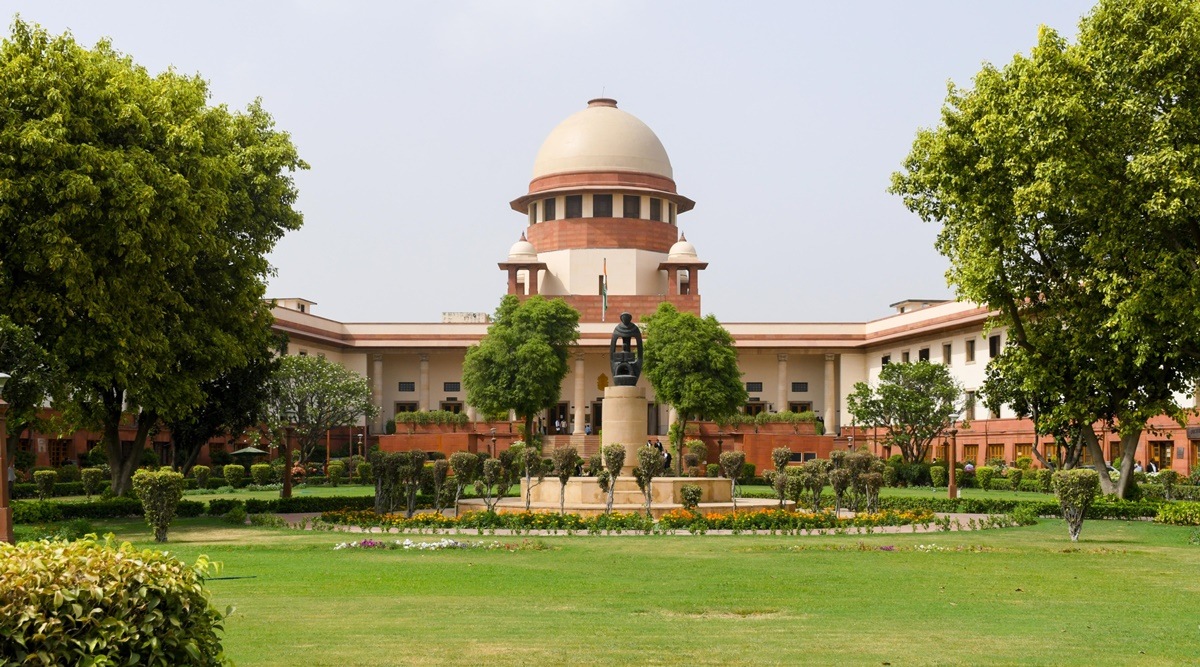 On the question of abortion access, the Supreme Court takes the bull by the horns in the new amendment to the Medical Termination of Pregnancy Act (MTP Act) and the Rules. (Express photo)
On the question of abortion access, the Supreme Court takes the bull by the horns in the new amendment to the Medical Termination of Pregnancy Act (MTP Act) and the Rules. (Express photo)While in the US reproductive rights are being rolled back for women, our Supreme Court is racing ahead, not only affirming the right to abortion for all women irrespective of marital status, but attempting to remove hurdles for women and girls to get access to safe and legal abortion.
The judgment of September 29, 2022, which was symbolically pronounced just after International Safe Abortion Day, has made a huge leap for women’s reproductive rights. It has shown us this is a court that is evolved and aware of the emerging issues around gender equality. For starters, the judgment mentions that all references to “women” and its interpretation of the Medical Termination of Pregnancy Act, 1971, would include persons other than cis-gender women who may also require access to safe medical termination of their pregnancies. Access to safe reproductive health services, including termination of pregnancies is required by trans persons, and there is no recognition of the complete denial of sexual and reproductive healthcare services to trans persons, especially transmen.
On the question of abortion access, the Supreme Court takes the bull by the horns in the new amendment to the Medical Termination of Pregnancy Act (MTP Act) and the Rules. The 2021 amendment to the MTP Act extends the time limit for termination of pregnancy from 20 to 24 weeks. This extension is provided only to certain categories of women as prescribed under the Rules. The 2021 Rules list out the women eligible for termination of pregnancy up to 24 weeks and this includes women who are survivors of sexual assault/rape/incest, minors, women with disabilities, women with foetal malformation, women in disaster or emergencies and women who have had a change of marital status during the pregnancy (widowhood and divorce). Thus, technically, single or unmarried women would not get the benefit of the extension of the 24-week window for abortion.
This has been a long-pending issue that women’s rights activities have been raising over the last several years. Single women who need abortion services are subjected to shaming, harassment and violation of their privacy by medical practitioners before being provided abortion services, and in many cases are even denied an abortion even up to 20 weeks. This is due to the stigma that women face in Indian society, even today, on account of being single, unmarried, divorced or widowed. The single status of women is not recognised as being worthy of equal respect and dignity and they are not considered of equal worth. By giving a broad and purposive interpretation to Rule 3B, the Court held that the Rule could not be limited only to married women. This would make it discriminatory towards unmarried women who would be denied access to abortions during the period of 20 to 24 weeks of their pregnancy and be violative of Article 14 of the Constitution, which guarantees equality before the law and equal protection of laws.
While this was the crux of the judgment, the Court takes the opportunity to address many other important issues relating to safe abortion access. It addresses the hurdles faced by minor girls in accessing abortion, due to the provision of mandatory reporting. The Protection of Children from Sexual Offences Act of 2012 (“POCSO”) requires providers of medical termination of pregnancy to mandatorily report sexual assault of a minor. Not only did this provision of mandatory reporting lead to pregnant adolescents being unable to access abortion as well as risking their confidentiality being violated by mandatory reporting requirements, the providers also faced a backlash. They often report a heightened fear of providing abortions to unmarried adolescent girls, due in part to concerns of a backlash from girls’ families. Hence, the Court held that for the limited purposes of providing medical termination of pregnancy under the MTP Act, medical practitioners need not disclose the identity and other personal details of the minor as required under the POCSO Act to ensure that the rights of privacy and reproductive autonomy of the minor are protected.
Finally, the Court also addressed sexual violence within marriage and recognised marital rape as a condition for abortion up to 24 weeks. Since the 2021 Rules allowing abortions up to 24 weeks include women who are survivors of sexual assault or rape, the Supreme Court held that for this purpose, it would include marital rape. While this would not amount to recognition of marital rape or the removal of the exception under the Indian Penal Code, I would argue that it is only a matter of time till our courts strike down the marital rape exception. This judgment takes some steps towards that goal.
Ultimately, the Court held what women have been saying for decades — that the law has to recognise the competence and authority of every woman to take her own reproductive decisions, including the decision to terminate her pregnancy. It upheld the right of all women and girls to make reproductive choices for themselves, without undue interference from the state, and recognised that any deprivation of access to reproductive healthcare also affects the dignity of women. It brings to my mind the title of the book produced by the Boston Women’s Health Book Collective in the 1970s, Our Bodies, Ourselves, calling upon women to demand autonomy of their own sexual and reproductive rights. It is truly an exciting moment when the highest court in our country takes this statement seriously.
The writer is Senior Advocate, Supreme Court of India